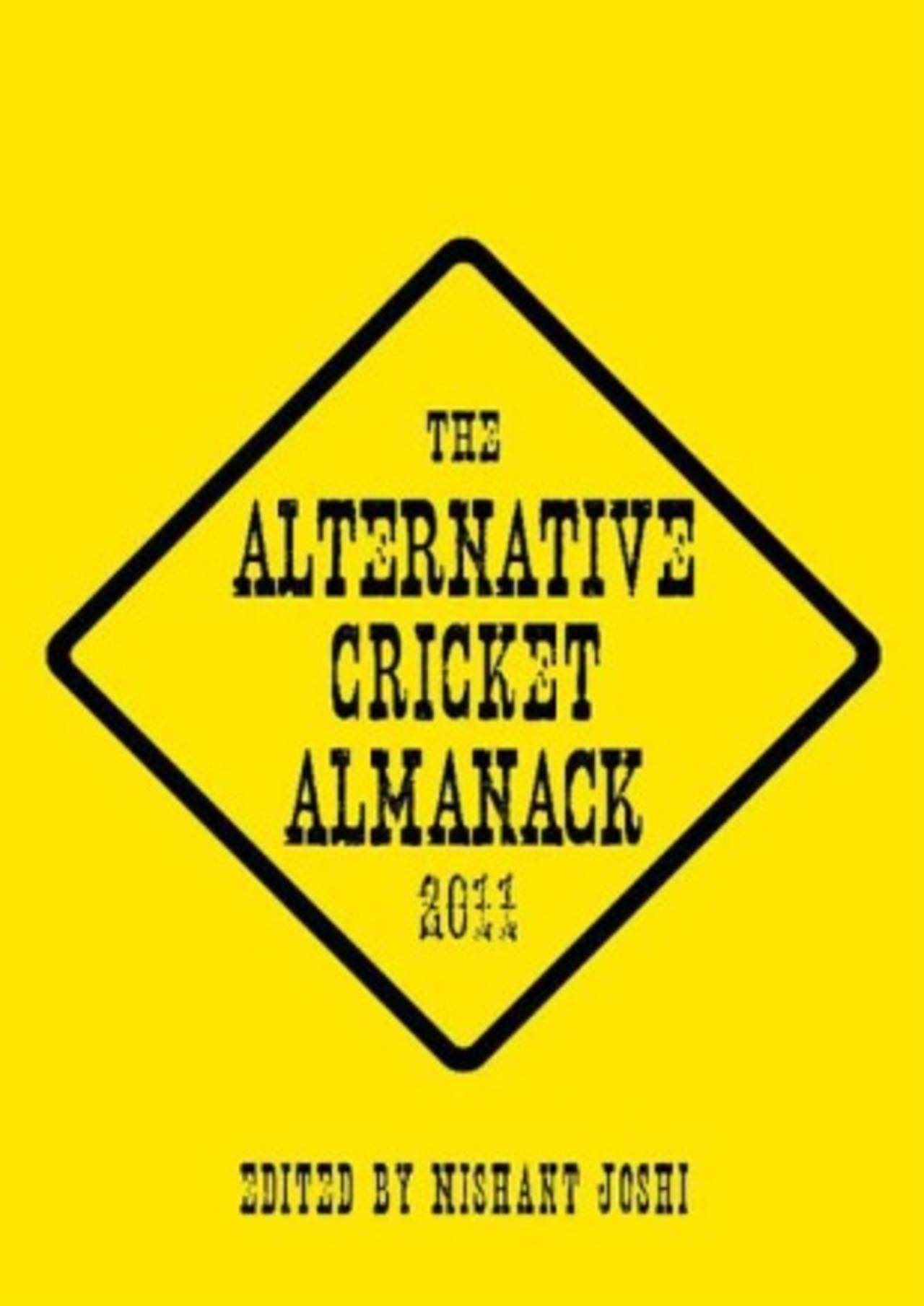A mixed bag for a good cause
A collection of (sometimes) alternative viewpoints that hits and misses in about equal measure
Alex Bowden
05-Feb-2011

Getty Images
Slimmer than its well-fed mainstream cousin, the Alternative Cricket Almanack, edited by medical student Nishant Joshi, is intended to showcase the best of the unheralded bloggers and tweeters that are around at the moment.
The opening article, "Referring From The Grave", is by Jarrod Kimber of Cricket With Balls and ESPNcricinfo's own Page 2, but this piece perhaps doesn't represent his finest work. Far better is his "How To Write A Cricket Diary", which appears a little later on and is one of the highlights. (Sample advice to would-be cricketing autobiographers: "Think of the book as your chance to explain all of your actions. No one can interject or use logic to stop you.")
Articles such as this represent the right approach with a book like this, as they offer insight in an unusual tone, whereas "Referring From The Grave" is quirkily entertaining but a little inconsequential. Still, an account of Don Bradman returning from the dead to refer his final Test dismissal does at least notify the reader that this is no staid, predictable cricket book.
You can generally categorise the articles as reminiscences / anecdotes about personal experiences, cricket-themed satirical fiction, or opinion about individual players.
Of the true life tales, I particularly enjoyed Subash Jayaraman's account of 80 expat Indians and Pakistanis sharing Pennsylvania basement rooms while watching their teams compete in the 2003 World Cup. This piece is genuinely heartwarming and gives a sense of how widely cricket fans are spread these days. Similarly intriguing for offering unfamiliar subject matter are Lucy Sweetman's description of the joys and difficulties of women's cricket and Lizzy Ammon's story of how she came to be a scorer.
Apart from Kimber's cricket diary piece, the best examples of satirical fiction are by the editor. In many ways Pakistan cricket is too easy a target and the subject often results in lazy writing, but Joshi just about gets away with it, painting a world of such extreme haplessness and self-sabotage that it's hard not to laugh. In his version of a day in the life of the Pakistan captain, a "daily ban meeting" results in arbitrary victims, while Ijaz Butt attempts to sue Kevin Pietersen for saying that spot-fixing is "a big shame".
The more opinionated writing is a little bit hit and miss. Daniel Norcross nails what should have been the book's essence when describing the origins of alternative cricket commentary site Test Match Sofa, saying that too often mainstream objectivity has become qualified by marketing concerns. His "20 Inconvenient Truths" later in the book is an example of the niche that an alternative cricket almanack should fill, taking pot shots at semi-sacred cows like Don Bradman, Michael Vaughan and Viv Richards and doing so in a witty and engaging way.
Too often the other alternative viewpoints offered in this book are actually relatively mainstream and are merely disguised by insults or swearing. Whatever you're writing, the tone and language are just the surface gloss and it's what's underneath that matters. Without the weight of authority behind your opinions, assessing current players is pointless if you're not going to offer much in the way of insight. Shorn of a unique viewpoint, some pieces amount to little more than name-calling. Half-Tracker's paean to Imran Tahir is a notable exception, being written with passion about a lesser-known player than most who feature.
By its nature, the Alternative Cricket Almanack is a mixed bag. A tighter focus than just "cricket" might have produced a better book, with the end result too sprawling in terms of both tone and subject matter. It's also variable in quality and let down by a few typos and occasionally inconsistent line breaks. That said, the eclecticism also ensures that every reader will find something to enjoy, and if you do find yourself vacillating it's also worth noting that proceeds will be going towards a scholarship fund linked to the Afghan Youth Cricket Support Organisation, which is committed to providing another alternative - this time to war and conflict.
Alex Bowden blogs at King Cricket